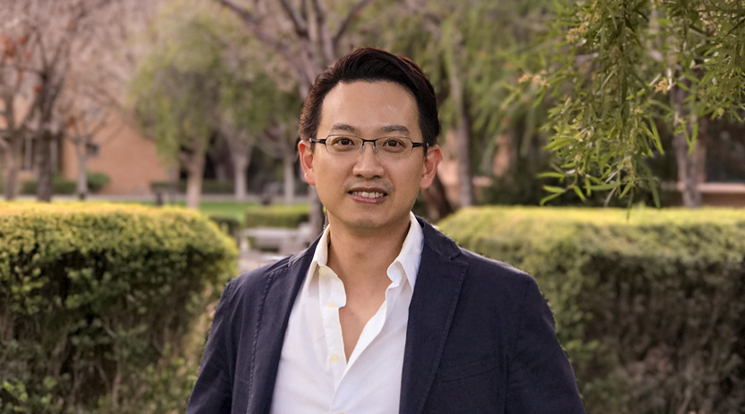Associate Professor Ying-Chih Chen publishes research on motivation and learning

Motivating students to connect with certain subjects, such as math and science that they may not see as relevant to their future career choices, can be challenging. One approach used is argumentative writing, which incorporates writing to encourage students to use critical thinking and problem-solving skills as they broaden understanding of complicated concepts.
In a study led by Ying-Chih Chen, associate professor at Arizona State University’s Mary Lou Fulton Teachers College, he along with two other researchers evaluated motivation to learn. They did this by evaluating outcomes from a college chemistry course designed for non-majors that utilized argumentative writing. The paper was published recently in Reading and Writing.
The results from the two-phase project, over the course of three years, showed that students’ motivation to learn chemistry at the beginning of the course is a significant predictor of their conceptual performance. The research opens the door to a greater understanding of the benefits of developing personalized learning approaches among non-science majors in general.
“Motivation can be a significant factor in how students approach learning, and this research contributes to a greater understanding of how educators can better apply motivation among students who bring a diversity of experiences and career goals,” says Chen.
In one example, nursing students may benefit from a greater understanding of how the skills they learn in required science courses have direct application to their career goals. Interpreting data as evidence, generating claims and constructing multi-model representations are all science-based skills, the paper notes, that may be applied to interpreting and explaining the symptoms of patients.
The research paper, “Action research to explore argumentative writing projects supported with online simulation for developing conceptual knowledge and motivation to learn,” is co-authored by Chen Claudia Aguirre-Mendez from Emporia State University and Takeshi Terada from the Social Policy Institute at Washington University in St. Louis. Terada earned his Doctor of Philosophy in Educational Policy and Evaluation from MLFTC.
The research’s pathway analysis identified both low motivation and high motivation students at the onset of the course. It found that the performance of argumentative writing projects in low motivation students was affected by extrinsic motivation, such as grades and career. Their performance in argumentative writing projects did not affect their post-course knowledge. In contrast, the performance by high motivation students was affected by intrinsic motivation and self-determination. They cumulatively built knowledge through projects that eventually affected post-course knowledge. The research identifies areas for further exploration, such as whether the writing process itself may inhibit or encourage student learning based on individual communication preferences.
“On a broader perspective, the critical thinking challenges that scientific inquiry poses can be extended to all students' problem-solving skills to interpret and analyze complex information,” said Chen. “This in turn creates a foundation to make decisions related to wider societal concern in areas such as climate change, sustainable use of energy and public health policy.”